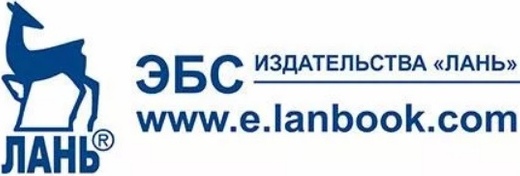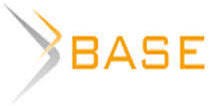the problem of blocked foreign securities and directions for its solution
Abstract
At the present stage of development of international social relations the population of the Russian Federation is faced with an unprecedented problem of discrimination on the basis of nationality of their inalienable international right to own property by certain foreign states, their associations and institutions, one element of which is the illegal blocking of foreign securities of Russian residents, whose value, according to some estimates, is equivalent to 6 trillion rubles. Moreover, the true goal of the policy they pursue in this area, in our opinion, is an attempt to discredit the leadership of the country, successfully opposing the Anglo-Saxon elites, which incur plans for the destruction of our statehood and the state as a whole.
The article under consideration proposes a fundamentally new approach to solving the problem of foreign securities blocked on the Russian stock market in the course of counterproductive Western sanctions. The study substantiates the illegality of the imposed restrictions from the point of view of international law, determines the number of affected Russian investors, as well as the amount of damage inflicted on them. The analysis of theoretical studies and practical developments aimed at minimizing the consequences of this phenomenon was carried out, the results of which led to the conclusion about the insufficiency of the developments and measures taken. The article reveals the principal scheme of registration of foreign securities purchase and sale transactions, as well as the role of the international settlement and clearing depository Euroclear in their registration. The article proposes three main directions to reimburse Russian investors for their losses, the first two of which are based on the freedom of expression of their will, while the latter is implemented as part of the state mechanism introduced in the case of compulsory seizure of foreign companies' securities from Russian owners by foreign states.
Introduction
According to paragraph 1 of Article 17 of the Universal Declaration of Human Rights (hereinafter referred to as the Declaration), “Everyone has the right to own property alone as well as in association with others.” Thus, every person, regardless of their race, skin, language, national origin, by virtue of Article 2 of the Declaration, is guaranteed the right to freely own his property.
Despite this, on June 3, 2022, the European Union, in accordance with Regulation No. 269/2014, imposed blocking sanctions on the Russian National Settlement Depository (hereinafter referred to as NSD), which is the superior depository for most depositaries, taking into account the rights of investors on foreign securities, including both the depository of the Public Joint Stock Company «SPB Exchange», and the depositories of the largest Russian brokers associated with it (Alfa-Investments, BCS, VTB-My investments, Tinkoff-Investments, etc.).
The above effectively excluded the possibility for citizens of the Russian Federation who own foreign securities accounted for through NSD to exercise their right to dispose of the said property, which is one of the components of the right to own it. That is, Russian investors are faced with the illegal fact of violation of their rights on a national basis. “Double standards” were applied to them, used “as an instrument of political struggle”, about which the President of the Russian Federation Putin Vladimir Vladimirovich repeatedly warned.
According to Vladimir Chistyukhin, First Deputy Chairman of the Central Bank of the Russian Federation, “The volume of blocked foreign securities of residents registered in the NSD is equivalent to 6 trillion rubles”, which is one of the threats to the “quality of life of citizens” [Madatova O.V., 2016]. At the same time, Philip Gabunia, Deputy Chairman of the Bank of Russia, said that “More than 5 million Russians have blocked assets on their accounts”.
As a result, the rights of five million citizens of the Russian Federation under international law regarding the freedom of disposal of their property have been violated and have not been restored to date, and the damage from these actions amounted to six trillion rubles. The need to solve this problem determines the relevance of the study.
Main part
The purpose of this work is to develop specific measures to solve the problem of blocked foreign securities by eliminating or minimizing damage to Russian investors.
The study of the scientific papers showed, that despite the significant number of victims and the extent of material damage they suffered, the problem of the inability to dispose of frozen foreign securities by Russian investors has not been scientifically reflected in scientific circles. Works of individual authors dealing with the problems of countering sanctions restrictions, such as Zvyagintseva N.A [Zvyagintseva N.A., Markov D.E., 2022], D.E. Markov, E.V. Semenkova [Semenkova E.V., Vlasova E.N., 2022], E.N. Vlasova, etc. has not addressed the topic under consideration.
On the contrary, some work has been done in practice to solve the problem. Thus, in response to the blocking of the international settlement and clearing depository Euroclear, by decision of the Bank of Russia dated May 30, 2022, certain foreign securities with a primary listing on US exchanges held by NSD were blocked on investor accounts, with the exception of certain companies such as Cian PLC , Ozon Holdings PLC, Yandex N.V., etc.
At the same time, the essentially correct decision on blocking raises doubts about the way it is implemented. Thus, the normative act itself, affecting the rights of five million of our citizens, has not been officially published. There is only information from the Bank of Russia that “the Bank of Russia has limited exchange trading in foreign securities blocked by international depositories”. This casts doubt on the legitimacy of the blocking, since according to Part 3 of Article 15 of the Constitution of the Russian Federation, “Any normative legal acts affecting the rights, freedoms and duties of a person and a citizen cannot be applied if they are not officially published for general information”.
As another protection measure, “the Bank of Russia restricts the sale of securities of unfriendly countries to unqualified investors”, as indicated in the Information of the Bank of Russia dated 09/06/2022 according to which it is assumed by limiting the acquisition of a gradual reduction of the share of securities of issuers from unfriendly countries to 15% since 10/01/2022, to 10% since 11/01/2022, to 5% since 12/01/2022 as well as a complete ban on the acquisition of these securities since 01/01/2023.
This decision, in our opinion, does not comply with the legislation of the Russian Federation, both in essence and in terms of legal regulation.
Firstly, this information has not been officially published, which means that the act in question is not applicable.
Secondly, the requirements of Article 7 of Federal Law No. 86-FZ dated July 10, 2002 “On the Central Bank of the Russian Federation (Bank of Russia)”, which defines the list of regulations are violated. According to Article, “Bank of Russia shall issue normative acts in the form of ordinances, regulations and instructions binding for the federal bodies of state power, the bodies of state power of the constituent entities of the Russian Federation and local self-government bodies and all legal entities and private individuals”. Thus, the Information of the Bank of Russia is not a normative act, and therefore is not subject to mandatory execution by legal entities and individuals.
Thirdly, this ban infringes on the constitutional right of citizens to dispose of their property, established by Part 2 of Article 35 of the Constitution of the Russian Federation, according to which “Everyone has the right to own property, own, use and dispose of it both individually and jointly with other persons”. Thus, a dangerous precedent has been created that restricts the rights of citizens to dispose of their property outside of legislative regulation.
Fourthly, the decision under consideration contradicts the constitutional and civil legislation, since, in its essence, it prevents citizens from carrying out entrepreneurial activities.
By its legal nature, investment activity is entrepreneurial. In accordance with paragraph 3 of Article 2 of the Civil Code of the Russian Federation (Part One) No. 51-FZ dated November 30, 1994 (hereinafter referred to as the Civil Code of the Russian Federation), entrepreneurial is understood as “independent, carried out at one’s own risk, aimed at systematically obtaining profit from the use of property, sale of goods, performance of work or provision of services”.
Investments of citizens in securities is a type of activity carried out by them independently, there are significant risks in their conduct, they are aimed at systematically making a profit in the form of a difference in the cost of selling and acquiring securities, other financial instruments, or receiving dividends or interest.
Thus, the investment activity of citizens in securities is a kind of entrepreneurial activity, which has been confirmed in modern science in the scientific works of S.P. Moroz [Moroz S.P., 2006], I.V. Ershova [Ershova I.V., 2014], A. Spektor, G.D. Otnyukova, et al.
Thus, for example, E.V. Kunitskaya clearly indicates that “Investment and business activities are varieties of economic activity ... Both activities are aimed at profit and have a risk nature”. [Kunitskaya E.V., 2021].
At the same time, according to Part 1 of Article 34 of the Constitution of the Russian Federation, “Everyone shall have the right to a free use of his abilities and property for entrepreneurial and economic activities not prohibited by law”.
Article 18 of the Civil Code of the Russian Federation determines that “Citizens may … engage in entrepreneurial and in any other activities, not prohibited by the law”.
Consequently, the Information of the Bank of Russia dated September 6, 2022 restricts the constitutional and civil rights of citizens to carry out entrepreneurial activities.
In our opinion, a similar restriction of the rights of citizens also includes the proposal of the Central Bank of the Russian Federation to change the amount of assets required to obtain the status of a qualified investor from six million rubles to 30 million rubles, that is, five times.
Moreover, these measures are not able to solve the problem under consideration, that is, to compensate for the damage already caused to Russian investors, although in the future they make it possible to minimize their possible future losses.
In our opinion, the measures to protect citizens affected by these sanctions should include the activities of the NSD, which on August 12, 2022 filed a lawsuit with the EU court (Luxembourg) demanding the lifting of the imposed restrictions.
At the same time, the study of scientific literature on the activities of the Court of Justice of the European Union [Bogatyrenko I., 2019; Sorokina, E.A., 2021] showed that the Russophobic hysteria in the EU, in our opinion, has led to the fact that it will be extremely problematic to achieve justice in the form of the abolition of the restrictions in question. Apparently, the EU court will follow the path of “delaying” the procedure for considering the NSD's claim under any procedural pretexts, and the final decision will be predetermined by the political situation that prevailed at the time the judicial act would be issued.
This point of view is also confirmed by significant changes in the correlation of the norms of international and Russian law, due to the need to recognize the priority of national legislation over international, as well as not to recognize the decisions of the European Court of Human Rights, in some cases, which were clearly defamatory in nature of the legal acts of the Russian Federation.
At the same time, in our opinion, the regulator's decision to restrict the possibility of making transactions with blocked securities is based on an incorrect interpretation of the primary nature of the restrictions introduced.
The initial ban on accounting for the change in ownership of the securities in question was introduced by the international clearing and settlement depository Euroclear, subsequently confirmed by the EU by including NSD on the list of blocked persons.
In response to Euroclear's actions, the Central Bank of Russia banned public trading. Thus, if the named depository interrupted interaction with NSD, the Bank of Russia completely ruled out the possibility of conducting operations by both NSD and the depository of the SPB exchange and Russian brokers associated with it by depositories.
However, in our opinion, trading in blocked securities within the Russian segment of depository activities could be continued, if accounting for ongoing transactions would be carried out on a separate platform directly by NSD.
In the pre-sanction period, schematic diagram for registering completed transactions with securities had the form shown in the Figure.
The figure shows that in the scheme under consideration, Euroclear was the link between the national depositories, allowing for the free movement of securities and financial flows worldwide. The right to securities was transferred from the seller to the buyer as a result of the successive registration of the transaction, and the money moved from the buyer’s brokerage account to the seller’s brokerage account.
Following the refusal of the Euroclear depositary to cooperate with NSD, the possibility of a relationship between NSD and other national depositories was lost. However, it remains within the NSD itself.
This factor was not considered by the Bank of Russia when making the decision on the prohibition of bidding. Of course, at the time there was no other way because the transactions carried out on the market could not be properly executed, but also paid.
At the same time, within the framework of the Russian segment of depository activities, these transactions could be carried out, there are no obstacles for this.
In this regard, at the first stage, it is proposed to create a separate trading platform based on NSD, where blocked foreign securities can be placed on special accounts of their owners, with the ability to freely carry out purchase and sale transactions by analogy with the stock market. At the same time, accounting for completed transactions should take place exclusively in the Russian segment of depository activities.
When Western sanctions are lifted, it will be enough to execute an accounting transaction between the owner of securities according to the Euroclear depository on the date of the introduction of sanctions and their owner according to NSD, which will bring the specified databases into line.
Access to the said trading platform should be provided to everyone, including both Russian and foreign legal entities and individuals, both from friendly and unfriendly countries, since a larger number of participants with a constant volume of blocked securities based on the law of demand will lead to to an increase in the transaction price, which is beneficial for their Russian holders.
The conclusion that some investors will decide to participate in trading in the sale of blocked securities is based on the following assumptions.
Firstly, a change in the economic situation in the market in some cases leads to the insolvency of investors, lack of funds both to maintain the usual standard of living and to meet the basic needs of family members. The solution to these problems can be achieved through the sale of their blocked securities. If this is due to the lack of means of subsistence, then this is already a direct obligation of the state, which can be implemented by providing access to blocked funds.
Secondly, in their investment activities, investors adhere to various strategies. For example, one of the effective investment strategies is associated with minimizing losses, according to which it is better to lose a part than to lose everything. Since the threat of seizure of blocked assets by Western sanctions remains, this factor may determine the desire of owners to sell securities at a certain discount.
Some investors make a profit in the stock market not from interest or dividends, but by changing the price of an asset. For this group, the diversion of capital from circulation into frozen securities is inherently unacceptable.
The conclusion that some investors will decide to purchase blocked securities is based on the following assumptions.
Firstly, the securities in question are likely to be sold at a certain discount from their market price. As a result, when sanctions are lifted, they are able to generate some income due to the exchange rate difference.
Secondly, despite the fact that the securities were blocked, their owners retained ownership of them, including the right to dividends and interest, which, although also frozen, will be paid in full when the sanctions are lifted, which will bring them additional income for new owners, and not only for the period of ownership, but from the moment sanctions were introduced.
Thirdly, access to the market of foreign investors implies the possibility of acquiring securities that can be withdrawn from sanctions by their new owners, taking into account the presence of citizenship of a particular country.
Under such conditions it can be concluded that transactions on the purchase and sale of the blocked securities will have a certain spread. This will enable citizens of the Russian Federation to exercise the constitutional right to own and dispose of property in order to achieve their goals.
In the second stage, it is proposed to introduce an electronic system allowing the exchange in kind of blocked foreign securities owned by Russian owners on Russian securities owned by foreign investors.
A prerequisite for its implementation of the proposed measure is the fact that both Russian investors have a problem with the free sale of foreign securities, and foreign holders from unfriendly countries have difficulties with the sale of Russian securities.
The implementation of the proposed proposal is based on the requirements of the civil legislation of the Russian Federation. Subparagraph 2 of paragraph 4 of Article 143 of the Civil Code of the Russian Federation establishes the possibility of transferring ownership of registered securities “in the order of a continuous series of assignments of the claim (cessions) by making nominal endorsements on it or in another form in accordance with the rules established for the assignment of the claim (cessions)”.
Thus, Russian legislation provides for the possibility of transferring the right to claim securities on the basis of an assignment agreement, the conditions and requirements for execution of which are determined by Articles 388-390 of the Civil Code of the Russian Federation.
By virtue of paragraph 1 of Article 421 of the Civil Code of the Russian Federation, “The citizens and the legal entities shall be free to conclude contracts”, respectively, the terms for concluding a transaction are chosen by them independently.
Clause 1 of Article 567 of the Civil Code of the Russian Federation (Part Two) No. 14-FZ dated January 26, 1996 (hereinafter referred to as the Civil Code of the Russian Federation) provides for the possibility of concluding an exchange agreement, according to which “Under the barter contract each party thereto shall undertake to transfer into the ownership of the other party one commodity in exchange for the other commodity”. Thus, the possibility of exchanging of some securities for others does not contradict the Russian legislation.
The Euroclear depository (Euroclear SA/NV) is registered at: Boulevard du Roi Albert II 1 Saint-Josse-ten-Noode Brussels, Belgium, 1210, respectively, it is under the jurisdiction of Belgium, which belongs to the Romano-Germanic legal system [Koryakin V.M., 2011], which also includes the legislation of the Russian Federation, which provides for an exchange agreement as the basis for a change in ownership, and an assignment of rights as a change in the creditor when fulfilling obligations.
Thus, the creation of an electronic system that makes it possible to remotely conclude exchange or cession agreements, depending on the specifics of the civil law of a foreign participant in the transaction, as well as provide the necessary certified documents in electronic or printed form about its completion, will allow citizens to release their property from sanctions by exchange it for securities freely circulating in the Russian Federation.
In our opinion, it is necessary to consider another threat, the implementation of which is possible in the event of a further aggravation of the situation as a result of the counterproductive position of the United States and their satellites. The chain of events that have taken place, starting with the freezing of Russian (state, corporate, and private) financial assets, the illegal seizure of property, the retention of goods, in particular fertilizers, intended for delivery to other countries, and other negative events, suggest the possibility of a ban by hostile countries of execution of in their jurisdiction by companies of obligations under sanctions-blocked securities owned by Russian investors, or the withdrawal of these assets altogether.
Considering the grossest violations of international law by Western countries, the indicated scenario cannot be ruled out and it is necessary to prepare for it.
In our opinion, if a decision is made to refuse to fulfill obligations on foreign securities owned by Russian investors, the state should take measures aimed at compensating for the losses incurred by the latter.
To this end, it is proposed to form a state insurance fund for the compensation of defrauded holders of foreign securities (hereinafter referred to as the Fund), the financial resources of which are formed through the reimbursable withdrawal of securities of Russian companies from foreign owners whose states have not ensured the fulfillment of their companies' obligations to Russian investors.
These withdrawn securities are to be sold on the Russian stock market, and the proceeds are credited to the Fund from which payments are made to the affected Russian investors, in the course of which their ownership of the foreign securities held by them is transferred to the Fund.
In the future, the Fund transfers the ownership of the said assets to foreign investors who had Russian securities, thereby ensuring the implementation of the principle of repossession.
The distribution of funds between Russian investors and securities between foreign owners is proposed to be carried out on the basis of a specially adopted law based on the principles of Federal Law No. 127-FZ of October 26, 2002 “On Insolvency (Bankruptcy)”, which will ensure a fair distribution of the assets in question. Relevant legislative acts should be adopted in advance with a delay in their introduction until the said assets are withdrawn, which, in particular, can act as a determining mechanism preventing Western countries from taking a decision on violating the rights of Russian holders of securities.
Conclusion
Summing up the study, we note that because of counterproductive sanctions by the United States and other countries unfriendly to Russia, as well as illegal actions of the international settlement and clearing depository Euroclear, five million Russian investors suffered financial damage in the amount of about six trillion rubles. To date, neither in scientific circles nor in practice, sufficient measures have been developed and taken to fully solve this problem.
As part of the study, three measures have been proposed to initially minimize, and subsequently fully compensate for the losses incurred by investors. The first measure provides for the possibility of buying and selling blocked securities within the Russian segment of depositary activities.
The second measure provides an opportunity for direct exchange on the electronic platform of blocked foreign securities owned by Russian owners for Russian depositary securities of foreign investors.
The third measure is used as a response to the actual withdrawal of foreign assets of the stock market from Russian investors. Its implementation consists in the forced seizure of Russian securities from foreign owners for compensation with subsequent sale on the market to compensate for the damage caused to Russian investors. At the same time, foreign securities of Russian investors are also withdrawn and transferred to persons from whom Russian shares, bonds, etc. have been seized.
As a result, the rights of Russian investors, which are owners of foreign securities will be observed in accordance with the Constitution of the Russian Federation and the norms of international and civil law.

















Reference lists
Рр. 3, 6 (author of the paragraph G. D. Nevyukova). (in Russian)
Р. 225. (in Russian)
Рр. 105-126. (in Russian)